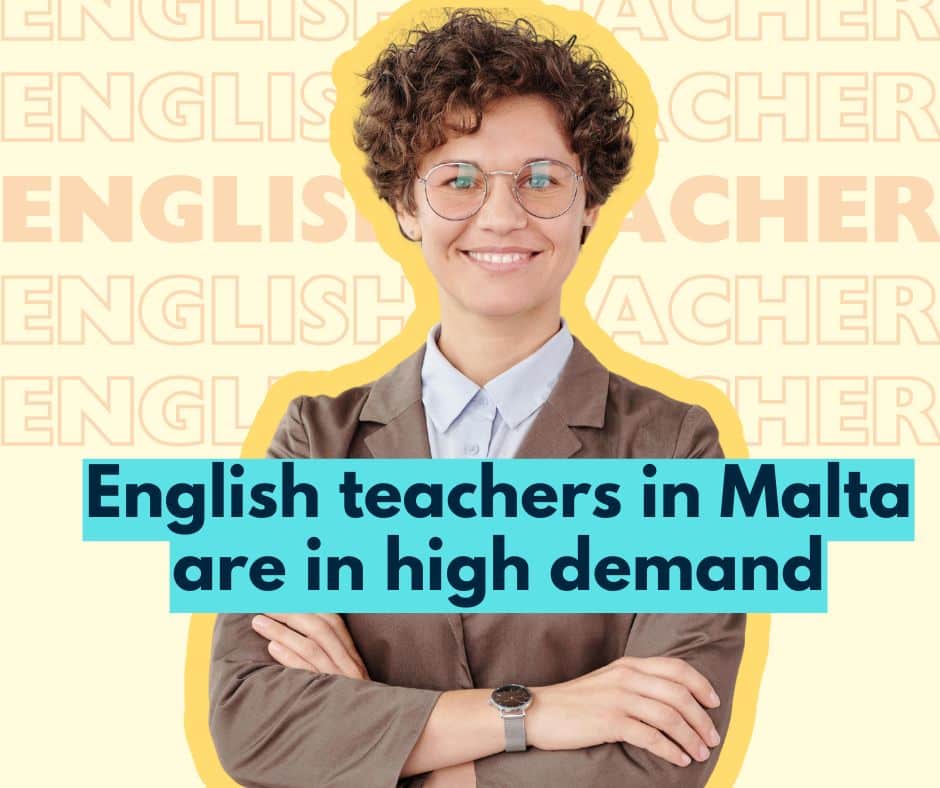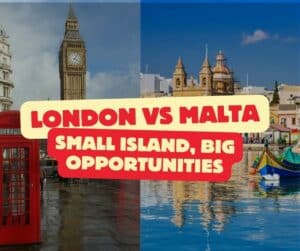

If you want a TEFL experience, you may want to consider Malta. Once upon a time, Malta was a colony of Britain, and there are a lot of British standards and traditions that are still upheld, including the education system. Anyone who has taught in an English school and moves to become an English teacher in Malta will recognise the education system as familiar. In Malta, English is one of the official languages, which means that you are sure to find work because English teachers in Malta are in high demand. Around about 88% of the population of Malta can speak English, but you will still find a good range of adults and children looking to improve their skills.
Why Teach English in Malta?
A Beautiful Location
Nestled in the heart of the Mediterranean Sea, Malta is a small island nation known for its stunning beaches, vibrant culture, and rich history. Whether you enjoy lounging by the seaside, exploring ancient ruins, or immersing yourself in local traditions, Malta has something for everyone.
Ideal Climate
With its warm, sunny climate, Malta is perfect for outdoor enthusiasts. The island’s mild winters and hot summers allow for year-round activities like hiking, swimming, and exploring charming coastal towns.
Language Schools Abound
Malta is home to numerous language schools that offer English courses for non-native speakers. These institutions frequently seek native English speakers to fill teaching positions, creating excellent opportunities for those looking to share their language skills.
High Quality of Life
Malta boasts a high quality of life with a relatively low cost of living, a robust economy, and a friendly, welcoming culture. It’s a fantastic place to live and work, where you can enjoy a balanced lifestyle.
Professional Development
Teaching in Malta not only allows you to gain valuable professional experience but also exposes you to new cultures and perspectives. It’s an opportunity to enhance your teaching skills while traveling and discovering new places.
Requirements for Teaching English in Malta
If you’re considering teaching English in Malta, here are some typical requirements you’ll need to meet:
- Bachelor’s Degree: Most language schools require teachers to hold a bachelor’s degree in any field.
- Teaching Qualification: While not mandatory for every position, having a TESOL or CELTA certificate is often preferred.
- Native-level English Proficiency: Schools typically seek native speakers or those with native-level English skills.
- Legal Work Status: Non-EU citizens will need a work visa to teach in Malta, so ensure you have the right legal documentation.
- Teaching Experience: While some schools prefer candidates with prior experience, many are open to hiring enthusiastic newcomers.
Keep in mind that specific requirements can vary from school to school, so it’s best to confirm with each institution you apply to.
Salary Expectations for English Teachers
Salaries for English teachers in Malta can vary based on qualifications, experience, and the institution you work for. On average, English teachers can expect to earn around €20,000 per year, with salaries ranging from €15,000 to €30,000 depending on the specifics of the position.
Many schools also offer additional benefits, such as housing assistance, travel allowances, and health insurance. Some may even provide bonuses or salary increases based on performance.
Be sure to research and negotiate your salary and benefits package with potential employers, as these can differ significantly.
Cost of Living in Malta
When considering a move to Malta, understanding the cost of living is essential. Generally, Malta’s cost of living is lower than many other European countries. Here’s a brief overview of typical expenses:
- Housing: Rent varies by location. Expect to pay around €700 per month for a one-bedroom apartment in the city center.
- Groceries: A weekly grocery basket costs approximately €100, which is lower than the average in other European nations.
- Transportation: Malta’s efficient public transport system makes getting around affordable, with a monthly pass costing about €30.
- Entertainment: A movie ticket is around €10, and a meal at a mid-range restaurant costs about €25.
By budgeting carefully and comparing costs to your home country, you can enjoy a comfortable lifestyle in Malta.
Top Locations for Teaching English in Malta
Malta has many great places to teach English, with language schools scattered throughout the island. Here are some popular areas to consider:
- Valletta: The capital city offers a vibrant cultural scene, historical attractions, and several language schools.
- Sliema: Known for its lively atmosphere and beachfront promenade, Sliema is a hotspot for tourists and expats alike.
- St. Julian’s: Famous for its nightlife, this coastal town is a favorite among young professionals.
- Birkirkara: Located centrally, Birkirkara is known for its historic sites and community vibe.
Ultimately, the best location for you will depend on your personal preferences and the specific needs of your employer. Researching and visiting various areas will help you find the perfect fit.
Life in Malta
Living in Malta is an experience filled with adventure and discovery. Here are a few aspects to keep in mind:
- Housing: Renting in Malta is relatively affordable, with one-bedroom apartments ranging from €500 to €800 per month.
- Transportation: Malta has a well-connected public transport system, including buses and ferries, making travel easy and inexpensive.
- Cultural Richness: Malta boasts a diverse culture, influenced by Mediterranean, Arabic, and British traditions. There’s a wealth of history to explore, from ancient ruins to vibrant local festivals.
In summary, living in Malta offers a fantastic opportunity for those who appreciate sun-soaked beaches, rich culture, and a welcoming community. It’s a chance to teach, learn, and enjoy a unique lifestyle in a beautiful setting.
Fun Facts About Malta
To wrap up, here are some interesting facts about Malta:
- Malta is located approximately 60 miles south of Sicily and is made up of three islands: Malta, Gozo, and Comino.
- The official languages are Maltese and English.
- With a population of about 515,000, Malta has a mix of ethnicities, including Maltese, British, Italian, and Moroccan communities.
- Valletta is the capital city and a UNESCO World Heritage Site.
- The currency used is the Euro.
- Malta has a mixed economy, thriving in tourism, financial services, and textiles.
- As a parliamentary republic, Malta is a member of the EU, the UN, and the Council of Europe.
- The island boasts a rich cultural history influenced by Phoenician, Roman, Arabic, and British traditions.
Whether you’re looking to teach, travel, or immerse yourself in a new culture, Malta presents an exceptional opportunity. If you’re ready for an adventure, consider making Malta your next teaching destination!
For more information about our services contact the inlingua Malta team on info@inlinguamalta.com











